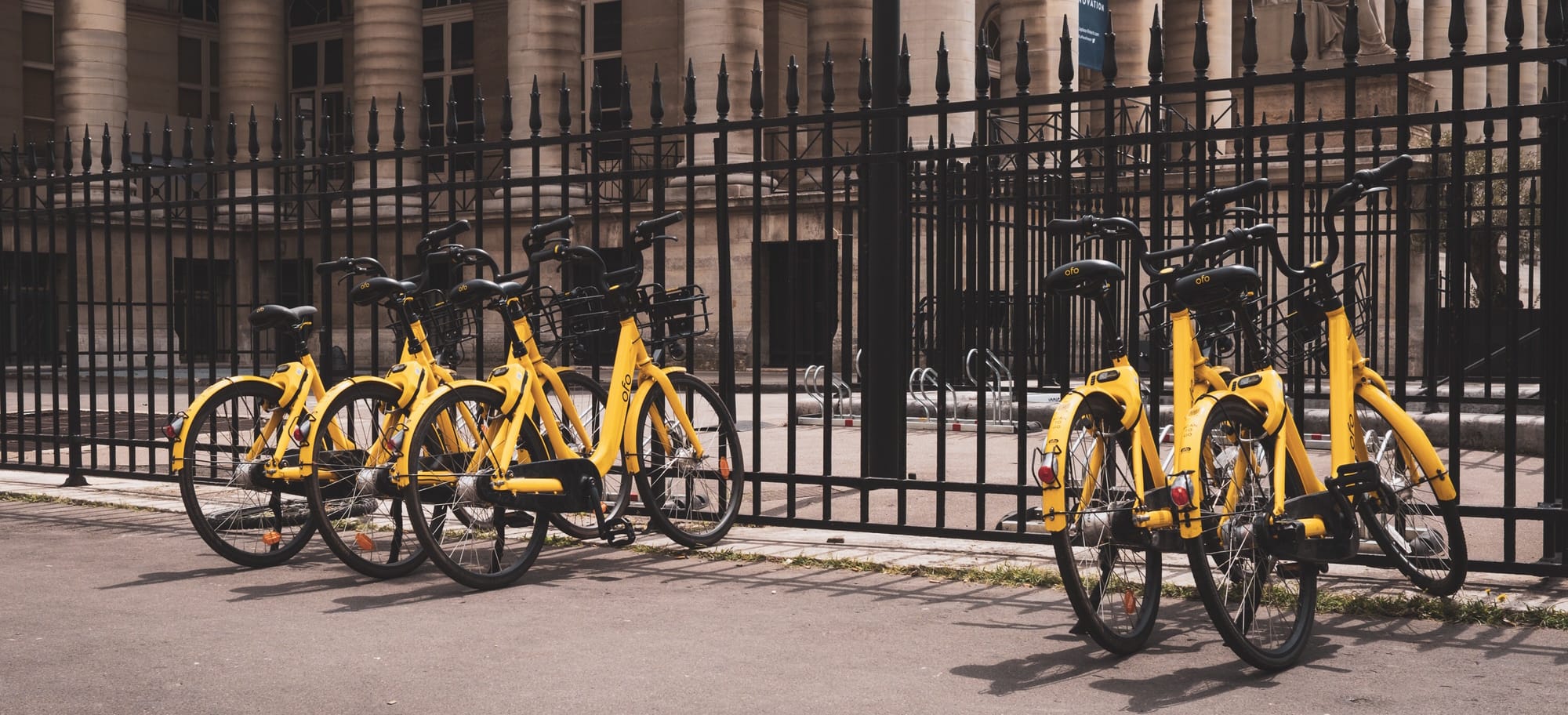
Warum es wichtig ist: Rein App-getriebene Bike-Sharing-Modelle haben einen Vorteil: Der Verzicht auf ein Dock macht die Verbreitung des Modells günstiger und damit schneller. Stadtverwaltungen können auf Bezuschussungen verzichten. Die Einwohner erhalten einen neuen Modus der Fortbewegung. Das ist aber nur eine Seite der Medaille.
Techg in Asia über den Rückzug der Bike-Sharing-Startups aus China:
Ofo reportedly plans to quit Germany, Australia, Israel, the Czech Republic, Austria, and India, in addition to significantly scaling back in other markets like the US and the UK. It is also said to be facing difficulties in Singapore.
Mobike, too, is scaling back its plans in the US, although it claims to be expanding elsewhere. And Hong Kong’s GoBee, which had similarly made a major international push, pulled out of Europe entirely before going bust last month.
Was ist der Grund dafür? Vandalismus:
In most countries, the operating company is ultimately responsible for fines related to misplaced, poorly parked, or vandalized bikes. This means that bike-sharing companies often get burned twice when their bikes are trashed on the streets: they have to spend to replace the bikes, and they have to pay local authorities the requisite fines.
Was dockfreies Bike-Scharing günstig macht, macht es auch anfällig für Vandalismus. Das wiederum kann die Kosten so hoch treiben, dass es nicht mehr nachhaltig ist.
Tech in Asia fasst brutale Zahlen zusammen:
When GoBee pulled out of France, its official notice cited “mass destruction,” adding:
“In four months, 60 percent of our fleet was destroyed, stolen or privatized, making the whole European project no longer sustainable.”
The numbers are apparently similar for other apps across international markets. Washington D.C., for example – which Ofo and Mobike both recently abandoned – has seen some dockless bike-sharing companies lose 50 percent of their fleets, according to a city official. Even the polite British apparently aren’t immune – Mobike employees in the UK told the Financial Times they have a particular problem with Manchester riders tossing their bikes into trash bins and canals.
Ein weiterer Grund für die Rückzüge, kann der jüngste Aufstieg des E-Scooter-Sharings sein. Aber was auf Fahrräder zutrifft, trifft auch auf Scooter zu..
Es bleibt die Frage, wie dockfreies Sharing die Vandalismusproblematik künftig umschiffen kann. Als Modell ist es zu attraktiv, um es aufzugeben.

